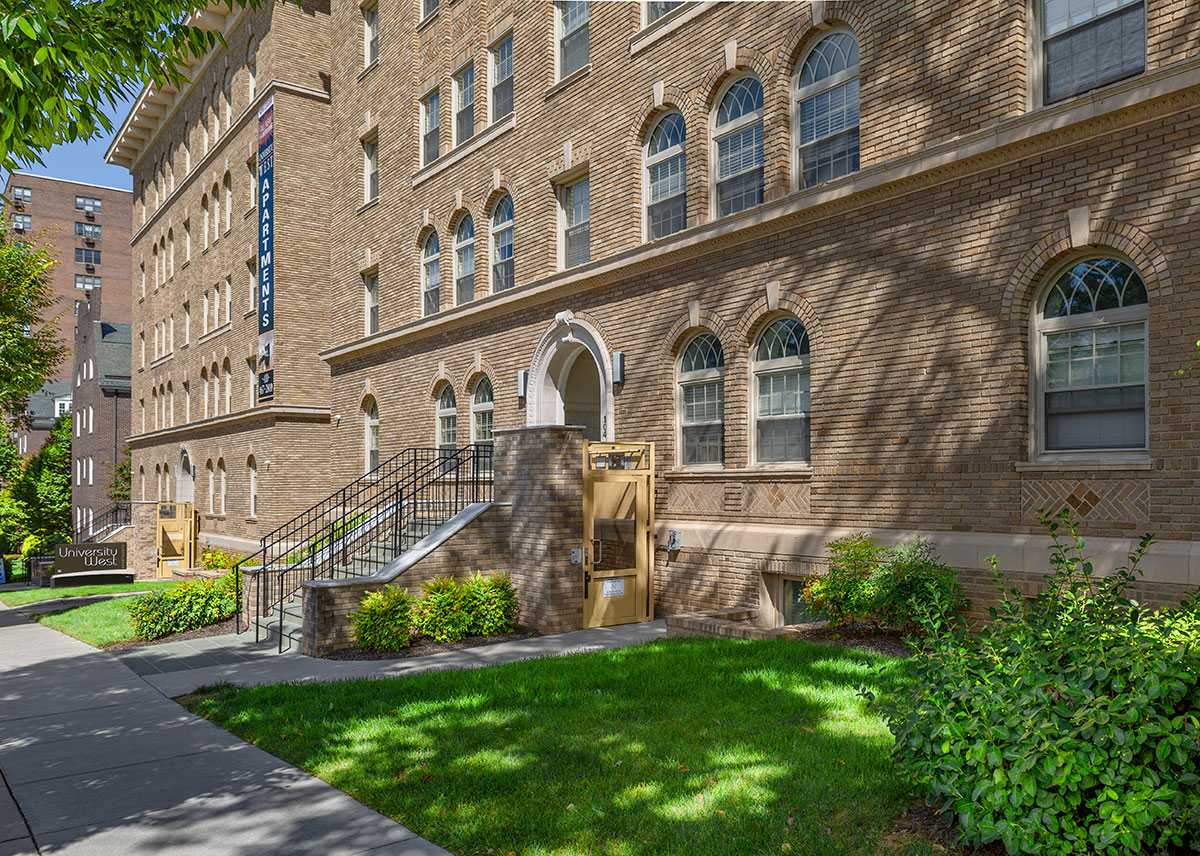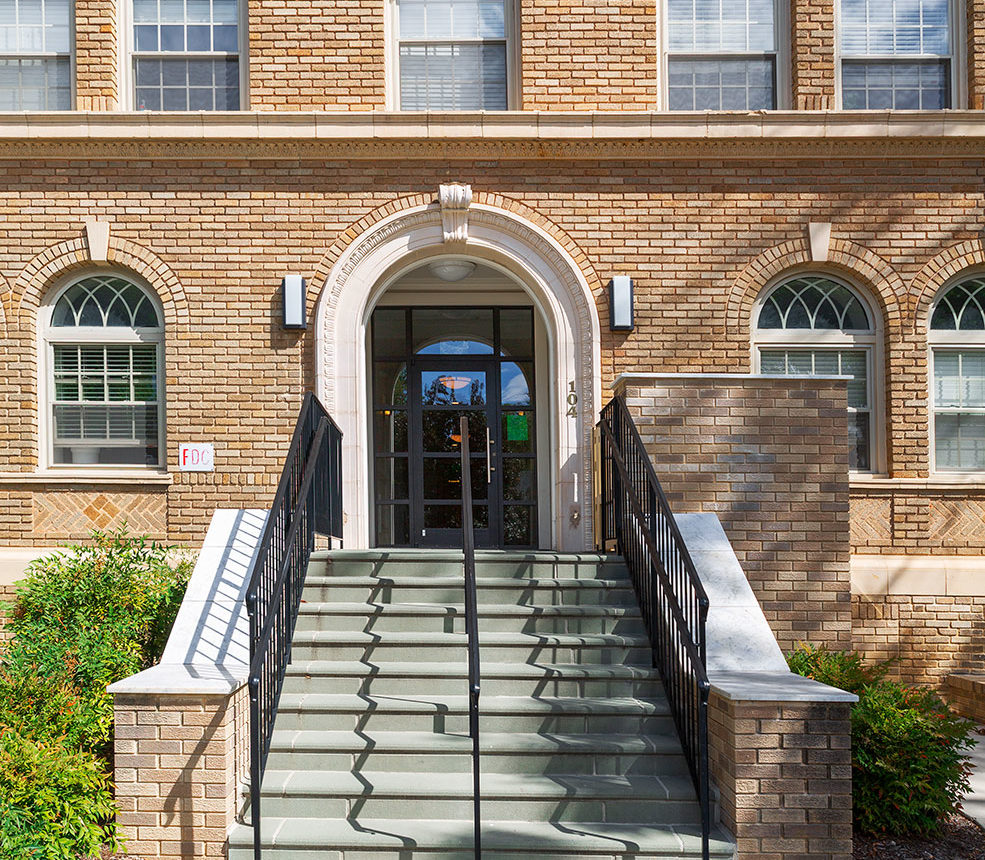104 and 106 W. University Parkway


104 & 106 W. University Parkway
104 and 106 West University Parkway
These apartment buildings were built on property purchased from George Morris. Both are elegant Italian Renaissance structures.
University Parkway apartments entering a new century. By Jacques Kelly Baltimore Sun, Aug 18, 2018
New tenants, many of them Johns Hopkins University students, have begun moving into the classic West University Parkway apartment house, one of the oldest, privately owned residential structures in the Tuscany-Canterbury neighborhood.
It’s taken more than a year to renovate 106 W. University Parkway, one of a pair of structures constructed in 1917 and 1923 that have served the North Baltimore rental market.
The two tan-brick structures, adjacent to First Christian Science Church, are not as well known as other neighboring residential buildings — the Ambassador, Warrington, Broadview and Tudor Arms. But they have a history that’s worth exploring.
George R. Morris was a builder and real estate developer who came to Baltimore from Le Raysville, Pa., after the 1904 Baltimore fire. Morris believed there were business opportunities in the recovery of the charred city. He actually made his name miles from downtown, in North Baltimore, where he practically founded the Tuscany-Canterbury community. He built and sold the rowhouses in the 3900 blocks of Cloverhill and Canterbury roads.
By 1916 Morris had acquired two large lots of the north side of West University Parkway and constructed an apartment house that overlooked the Johns Hopkins University’s then-new campus and Homewood Field.
Over the years, Hopkins students came to call the apartments the Uni-West, shorthand for West University. The units were typically small, but with good windows and hardwood floors.
Morris remained active in real estate until his 1968 death, and his family never sold these apartments. By the 1980s, many elderly residents lived there and made use of the old-fashioned amenities that a World War I-era building offered. They sent their trash down a chute to an incinerator and hauled their groceries up on a dumb waiter.
The place was piped for gas-lighting — then a Baltimore City code requirement — and heat came from a furnace that was coal fired and fed through iron chutes.
The apartments have had only three owners. George Morris left them to his son, John Morris, who sold them to James A. Clauson, president of Maryland Management Co.
Clauson found some interesting features. “When we purchased the buildings in 1985, all the apartments had electrical switches inside the showers,” he said.
“The place was not up to date,” he added during a recent tour. “When we first took over, there was one elderly woman who told us there hadn’t been hot water in the bathtub for years.”
Clauson and his management team decided that after a century of hard use, the West University apartments needed a thorough interior rebuild. He wanted to preserve the structures’ distinctive facades, but gut the small kitchens and enlarge the bathrooms.
George J. Arendt, project manager for Southway Builders, leads the crew that’s currently taking apart the 1917 half of the apartment complex.“It’s amazing the number of similarities I’ve seen with this building and the Parkway Theater,” he said, referring to the North Avenue movie house where he led a refurbishment two years ago. “The brick is the same [light tan], the exterior terracotta trim is the same, the mosaic tile patterns in the halls is identical and so is the marble in the staircases.”
Once updated, the units that are now available have found a natural rental constituency, Clauson said.
“We are definitely catering to a student population,” he said.
One particular idiosyncrasy lends itself to a clientele that can walk or use transit for work and school: “These buildings have no parking,” he said. “If there was parking, these buildings would be a different story.”
A few weeks ago work began on the more easterly of the pair of apartments. Mark Knott, a vice president for Maryland Management, showed their condition — hardwood floors sanded down so many times the nails were popping through, and baths with old-fashioned porcelain tubs.
But there’s also a charm and vista that will appeal to many; rooms with generously large windows overlook the North Baltimore tree canopy.
“These buildings have had a useful life,” Knott said. “They needed to have the reset button hit for them.”